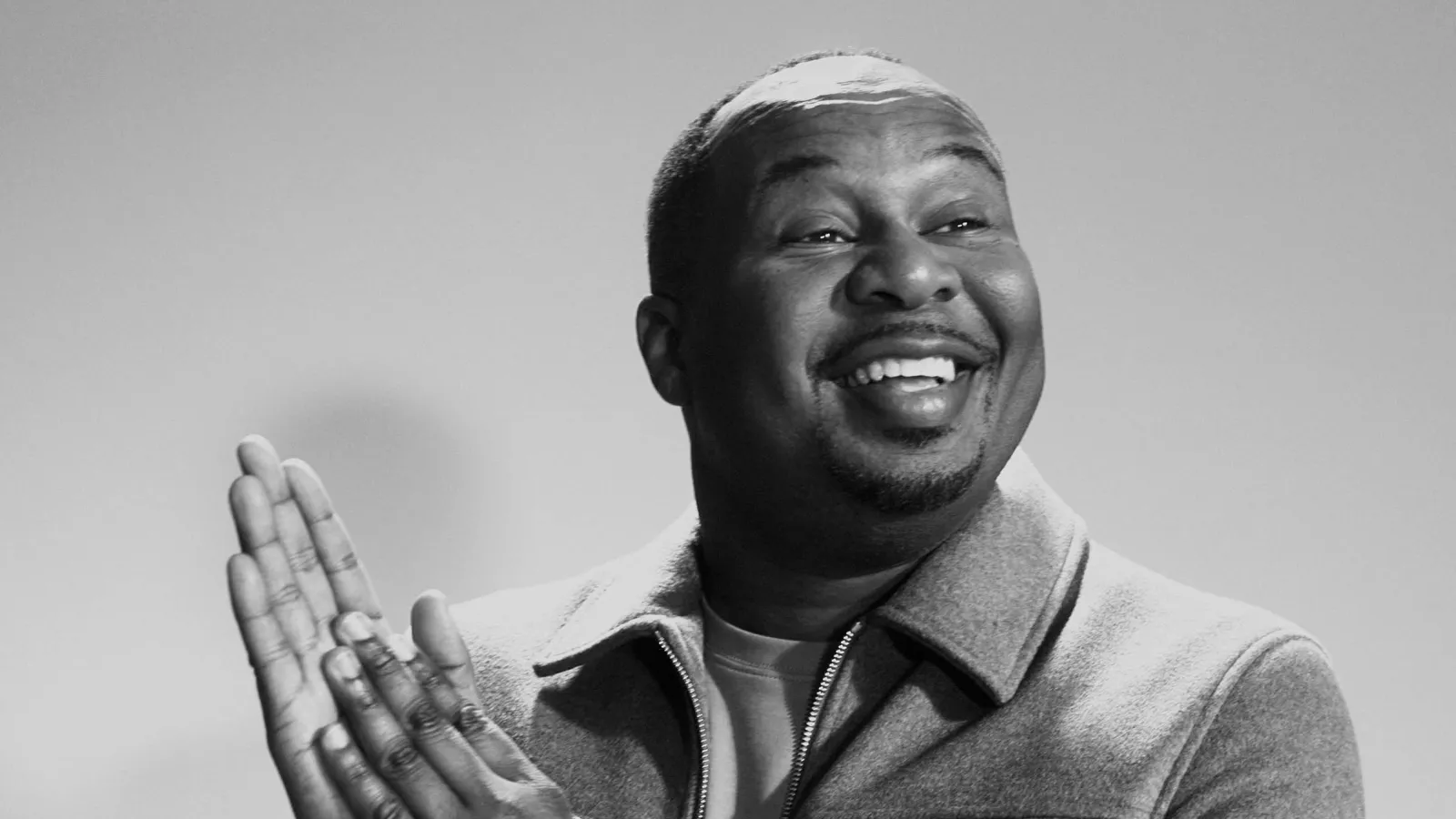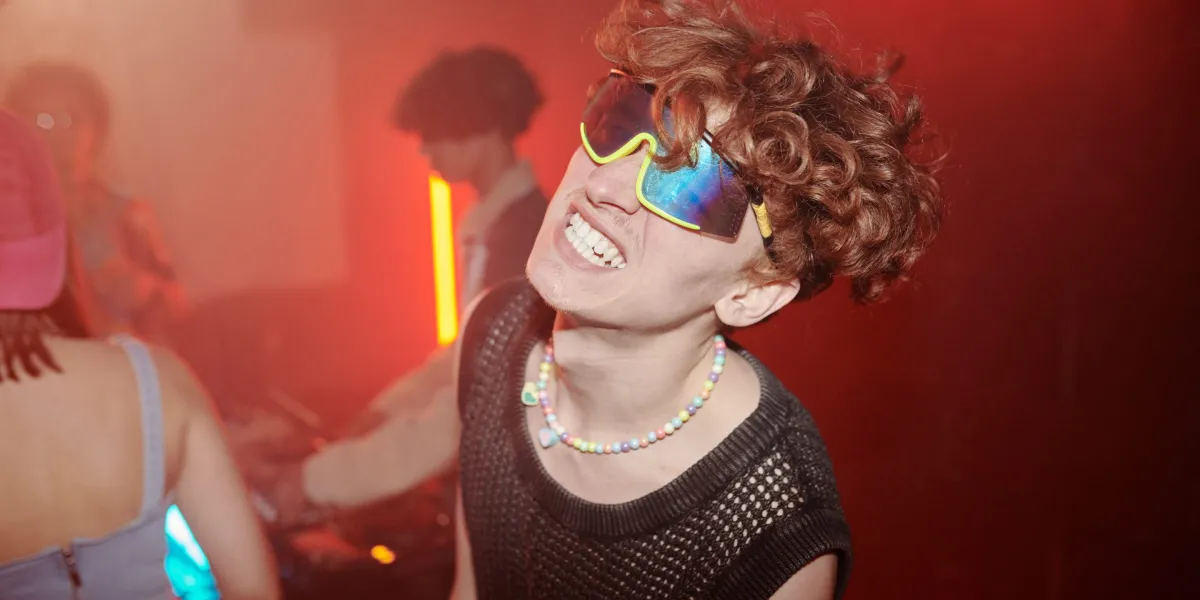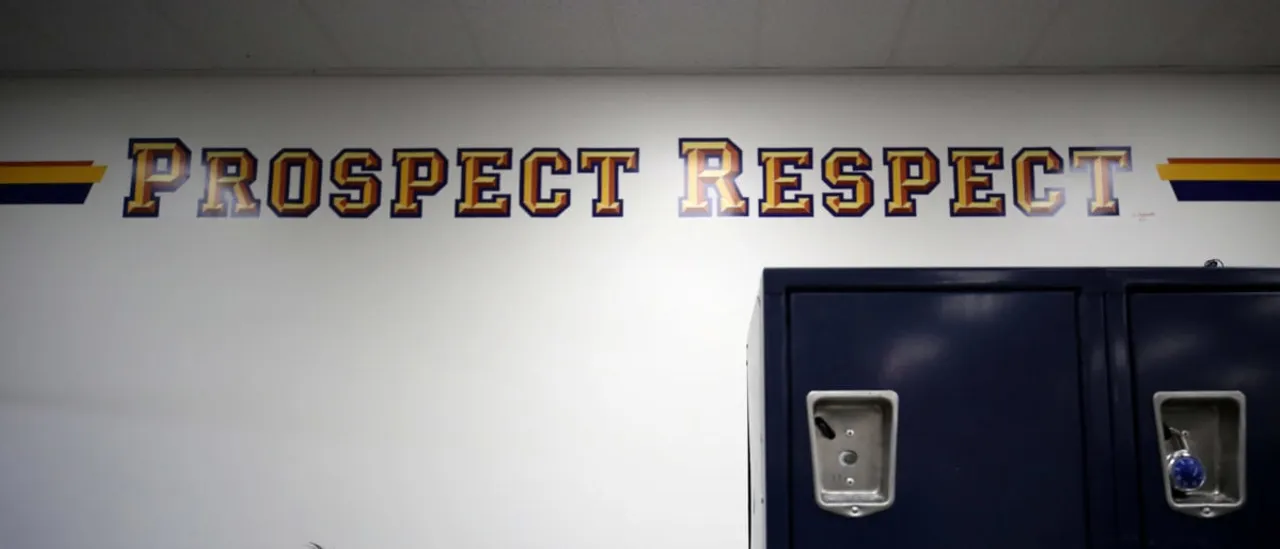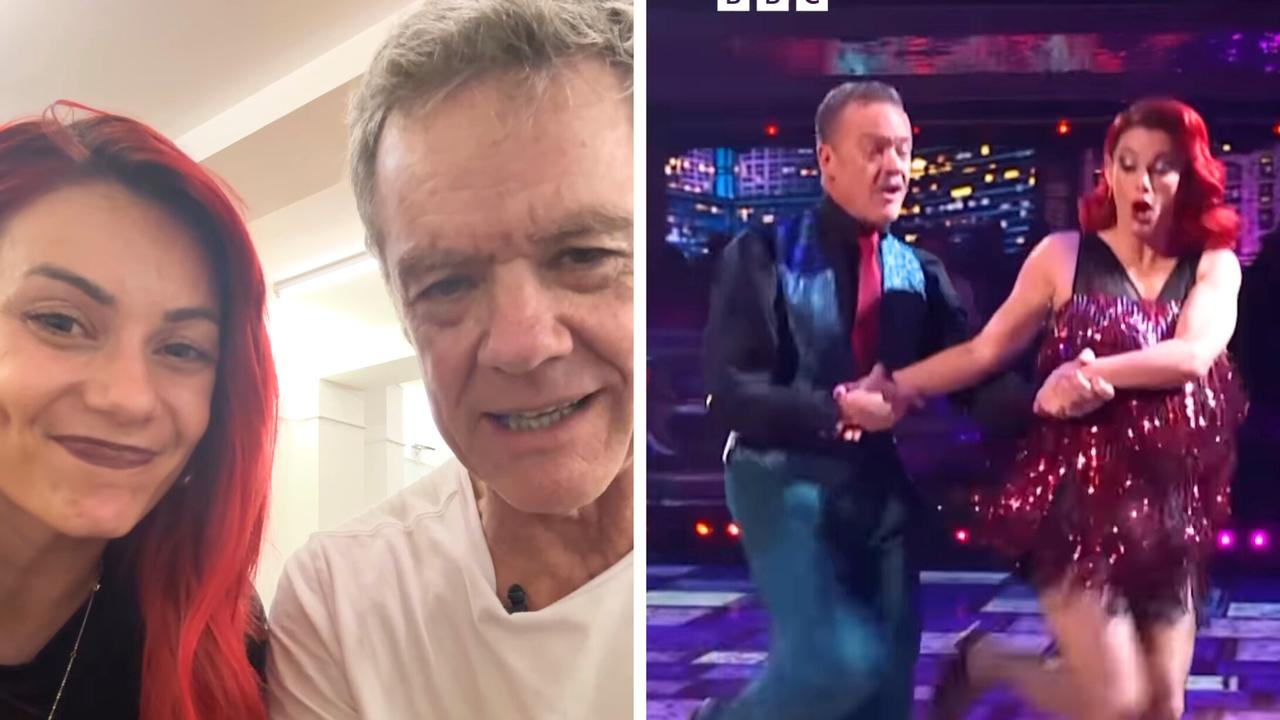Copyright Rolling Stone

R oy Wood Jr. has performed on virtually every kind of stage American comedy has to offer, from small, cutthroat clubs in the Deep South to sold-out theaters and televised specials that reach millions. At 46, he knows exactly who he is and what he wants to say, and he wants to make sure no one interferes with his freedom to say it. When he arrives to the Manhattan loft where we’re taping our interview, clad in jeans and a light-gray T-shirt and jacket (“I’m matching the rug, that wasn’t on purpose”), Wood asks if anyone on his team gave me any “no-fly zones” in terms of topics. “It hasn’t been a problem the past couple of years, but old agents and shit would come behind my back and go, ‘Don’t ask him about that,’” he says. I reassure him they didn’t. Wood is most famous from his stint on The Daily Show, an experience he calls “the best eight years of comedy learning that you could ever receive.” He left in 2023, after Comedy Central spent months waffling over who would replace outgoing host Trevor Noah, only to bring back Jon Stewart and a rotating cast of anchors. To Wood, Noah’s departure and the show’s recalibration aligned with his own reexamination of his goals. “I knew I wanted to do something different,” he explains. He’s now hosting a weekly program, CNN’s American take on the BBC panel show Have I Got News for You, with Amber Ruffin and Michael Ian Black, currently in its third season. And he’s written a memoir, The Man of Many Fathers (out Oct. 28), that’s a raw examination of his relationship with his own dad — radio host and journalist Roy Wood Sr., who co-founded the National Black Network — his upbringing in the post-Civil Rights-era South, and his journey through masculinity. With a journalism degree from Florida A&M and a decade spent in radio before throwing himself into stand-up, Wood is deeply informed on the issues facing America today. Much of his career has been focused on human connection and fostering understanding with the different people he’s met traveling the country, whether as a correspondent or a touring comic. That experience shows. He’s a loose and easy talker who can pull a laugh out of you with little more than a widening of his eyes. Editor’s picks In a time when the country feels almost irreparably broken along its partisan fissures, and political comedy has become a minefield for controversy, Wood is looking to bridge the gaps in his own way, and maybe leave behind a few lessons of his own for others to pick up. “The comedy helps me, so I do it onstage, in case it’ll help somebody else,” he tells me. “I don’t know if it will, but if it does, good.” Politics in America can feel pretty bleak right now. How do you even begin to make it funny? I think you make it truthful first, and from there, funny will follow. There are a lot of things happening right now that you can’t necessarily go, “Well, what’s the funny part of all the deportations?” But if you go, “What’s the funny part about the policies, or the hypocrisy of it, or National Guard troops sleeping in public because you sent them there without hotel accommodations,” you can find moments of truth in the midst of all of this calamity. And through that, you’re able to find the humor. Is comedy — finding that humor — a way to process everything that’s happening in this country? For me, comedy is a way to process everything. But as a Black American in this country, I don’t necessarily feel any new weight, if that makes sense. Of course. There’s always weight. There’s always some injustice. There’s always somebody dead that shouldn’t have died. I’ve been doing comedy for 27, 28 years now. So there isn’t some sort of “Oh, what? They’re doing what now? Well, let me really dial in and really make it funny.” I don’t think any comedian that attacks issues in this world is doing anything different than they were 10 or 15 years ago. John Oliver or Jon Stewart or Bill Maher — take your pick — they’re doing what they’ve always done, but it feels different, affects you differently. Water tastes different when you’re thirsty. Related Content I don’t think any comedian sits down to write the joke that’s going to heal you: “I see you’re in pain. Here, try this joke.” We’re here to provide an escape. The solutions, that’s not our responsibility. In your memoir, you write about how certain men you encountered in your life helped you navigate pitfalls. I wonder if politics, and political comedy, has itself been kind of a father figure, something that helped you navigate the experiences you were living. My dad was a radio news journalist, and he covered every global conflict you can name from the 1950s up until the L.A. riots. I grew up in a house where there was a room my pops had that was just for C-Span. He recorded it all day, and then would pull quotes from the sessions to play on his news radio, commentary shows, or whatever. So I grew up constantly digesting the news, but my father also [was] extremely pro-Black and extremely about Black Americans getting what they deserve from this country. So the narrative that I was fed was enough for me to not necessarily seek that out, journalistically speaking. I got a degree in journalism, but because I wanted to be [ESPN anchor] Stuart Scott. I wanted to be funny, I wanted to talk about sports. Then you graduate, and you’re bathing in student-loan debt, and it’s hard to find a good job. “Oh, wait, this country is set up against me. This is just like they were telling me in Florida A&M.” And the material changed. I was early thirties [when I started], I’m 46 now. So there was a long stretch of me just doing jokes about your roommate eating your Oreos before I got to Confederate flags, and the Kaepernick protest, and police reform, and VA hospitals not treating the troops with respect. Any topics I’ve talked about in my last four specials, none of that was reached in the first 15 years. “Being a road comedian gives you a different perspective on voters. You don’t see a party, you just see a person.” You cut your teeth on the comedy circuits of the South. How did you begin introducing that material? Late in the set, that’s for sure. Performing in the South, being a road comedian, gives you a different perspective on the voters of this country. Because you don’t see a Republican Party, you just see a person. And they voted Republican. There’s a difference when you’re viewing Republicans through graphs and pie charts and Gallup polls versus you being at a comedy club on a Thursday in a red state and telling jokes to voters who would never vote for your interests, and there being some degree of synergy and understanding. It definitely puts into perspective that most people in this country are voting to preserve themselves. And that’s what politicians tap into. “I got to find the one thing you really care about, and make you think that I care about that the same as you.” That’s what Trump did — Trump went out in Middle America and looked under them rocks, found a couple of votes over here, found a couple of votes over here, and here we are. People can feel, like you said, very disconnected from things that don’t impact their immediate environment. When you were growing up, media was much more local. The arbiters of news were very connected to the people around them in a community. Corporate consolidation of print media and the death of local reporters. How has your experience meeting people and building connections with audiences around the country been affected by that transformation? My pops had a call-in show where he talked to people. Then he would do speaking engagements at Black churches. Then he would go and be a guest journalism professor at XYZ college for a semester. He took me to a barbershop in Birmingham every two weeks where all of the Black politicians — the movers and shakers, the city councilmen, all of that type of stuff [went]. So I started understanding how local politics work, and the importance of local reporters. The difference between then and now, and this is coming from me also working 10 years in radio, is that everything is cookie-cutter. I think it’s 80 percent of radio stations are owned by five companies, or something. All of these radio stations don’t hire local DJs anymore. They got one person that lives in St. Louis that’s voice tracking to nine different markets. So how can the radio be the voice of the community and give the community access to uplift one another? Then you put the rise of social media on top of that. Now, the truth is only what you choose to believe. The truth becomes what makes you feel good, not what actually is. So most things, locally, are missed because of the monopolization of media. You’ve talked a bit about the reasons you left The Daily Show. Did you feel you had outgrown it? I don’t want to say outgrown, but I understood what the objectives and the directives of the show are, and some of the stuff that I wanted to start doing. I was feeling that, if I’m here, “Well, what do I want to talk about?” Of course there’s going to be Trump stuff, election stuff. But, man, that would’ve been really fun, while we were in Atlanta, to go talk at Black colleges about whether they’re going to live or die. I knew for sure this wasn’t going to be the place for that type of stuff. Perfect example, a while back there was a viral moment on TikTok with a bunch of Black people from Scotland, and Black America was all shocked that there were people who looked like us, but sound Scottish. I happened to be in Scotland at the time, and I went out and interviewed Black people who were born in Scotland. That was a very fun, self-produced field piece. And if I were to take that same construct and put that within The Daily Show or maybe even within CNN, it’s going to take two weeks. So being able to just follow my impulse and go do something on 48 hours’ notice and have it back out on the internet within 36 hours, that was exciting. That’s the shit I want to keep doing more of. It sounds like you’re returning to the roots of the person you described in your memoir, the person that first entered comedy. What’s really odd is that that Black-college story, it’s exactly the type of story my dad would’ve done. Now, he would’ve been angry, and it would’ve been no jokes. But you just start reverting into different thoughts, man. At The Daily Show, one of the main things I learned is that there’s always a third side or another angle to the issue that’s not being considered. I’m grateful that my first comedy special didn’t come out until I started working there. I think also, watching Trevor Noah and how he did interviews with adversarial guests, you seek to understand, don’t necessarily seek to be right. Sometimes you can talk people into not agreeing with themselves if you’ve got enough time to take a long enough walk. People talk about Saturday Night Live and what a comedy college that is. I put The Daily Show in that same realm.… I learned a lot about why people think the way they think politically. And it really confirmed a lot of what I thought from being on the road. I could go into a red state and know that if I’m going to do the joke about police reform, I can’t lead off with it. But if I do the joke about college football and then the joke about police reform, then you’re with me. And so The Daily Show was “How do I gain that type of trust in under 30 seconds with a man on the street?” “My mother picked cotton, got fire-hosed. How do you explain to that woman, ‘Yeah, I’m going to tell jokes and get on BET.’” Do you feel like CNN and Have I Got News for You are striking the balance you were looking for? To a degree. CNN gives me a platform to present everything that happened that week, and we get to exist in the silly stuff as well. It’s not just “Oh, the administration is going to take away Medicaid this week.” It’s also “Guess who this person was before Botox?” And we show you an un-Botoxed face of a political figure. We have blue and red guests on, sitting elected officials. And we get to dabble in what’s happening, why it’s happening, and then try to have a breather on the back side. Did you see a second Trump term? I didn’t see a second Trump term happening. And then when Kamala came in, I was like, “Oh, they might get it now. They might get it.” I think that there is a patent disregard for Middle America voters, and their opinions and thoughts aren’t held with the same degree of importance or priority. I don’t think you were ever going to beat Trump by telling Trump supporters, “Just look at the guy.” And that’s the playbook that a lot of liberals ran. And I’m not just talking about liberal politicians, I’m talking about liberals as a group, where they just go, “That guy is ridiculous, how could you vote for that guy?” Logic isn’t necessarily going to be the weapon, it might need to be love. And then from that, you hope that they find some logic. But just yelling and berating people, done that for eight years. Has it surprised you to see media and entertainment companies cave to the Trump administration? That was a new curveball. I don’t think Daily Show will ever bend the knee in that regard. You want to talk about a show that’s going to die on its sword, it will be Jon Stewart and all of my friends at that desk. The White House Correspondents’ Dinner this past year, for the first time in several years, was not hosted by a comedian. Ooh, that shit was bland. Shout-out to all the journalists, though. I know it’s to celebrate journalism. I would love to hear what it was like when you hosted in 2023, because to me, the White House Correspondents’ Dinner is often just self-congratulatory pageantry. It’s the most stressed I’ve been as a performer next to the Apollo Theater. Amateur Night at the Apollo, that is the peak of anxiety. Really? I’d take 1,000 Correspondents’ Dinners before I … Amateur Night at the Apollo is not to be played with. With the Correspondents’ Dinner, no matter what, half the room’s going to love the joke. You just don’t know when and you don’t know [which] joke. The Apollo, there’s a chance everyone will hate your guts in unison, and there’s no recovery. But I did [the Correspondents’ Dinner] under the Biden administration, so the vibes were different. It wasn’t necessarily an adversarial audience, but you definitely take your shots. My first joke was a joke on Biden. Yeah. About being old. Yes. To his face. I called you old and forgetful to your face. Now, granted, strategically I had to do that because no one knows who I am in that room. I’m on The Daily Show so you trust the résumé, but you don’t really know my face. You’re not completely sure who I am. So I have to punch the biggest person in the room first to get equity with everyone. Your book is a love letter to your son about how you became the person you are, the fathers who shaped you. I’m curious how fatherhood is changing your work. I became very aware of the world. My comedy is just silly: “Oh, Captain America got a Black sidekick. That’s crazy. He a white dude from the racist times. Ha, ha, ha.” Perfectly fine joke to do on Craig Ferguson. All right. Fine. Son gets born: “Yo, we got to figure out what’s going on with these Confederate flags and this discrimination, and we have got to get to the bottom of Black-history museums being under attack.” This idea of “What world am I leaving for him? And what did I do to try and change it?” That became a bigger thing. The other thing is that I started wanting to be home more, so the way I toured had to change. The thing you deal with when you travel for a living is the balance of providing versus being present. And you don’t know whether or not you did too much of one or the other, and you won’t know for another 10, 15 years. My son’s liable to come in the house in 10 years and cuss me out and say, “You was never around.” So even now when I’m out of town, we FaceTime, we talk, we engage. I show him what’s going on at the gig and the venue. Or if it’s a new city he doesn’t know anything about, I’ll go out on a walk and explore the city, which forces me to essentially be a local reporter. So then when I get onstage locally, I’m tuned the hell in to what’s going on in this market. So in a lot of ways it’s made me a better performer. You tagged along with your own dad for many of his work outings. A lot of hanging with my dad and having a front-row seat to his stuff [was] him not wanting to babysit. My dad didn’t want to pay for child care, so “Come with me. I’m interviewing Jesse Jackson backstage at the Democratic [Convention] 1988”-type shit. I’m sitting back there with a coloring book while Al Sharpton and Jesse Jackson chop it up with my dad. “You remember, Roy. We were down in Selma. Remember the Selma thing when they hit us over the head? That was a good time.” This book is about fathers and manhood, but I want to touch on your mother, who seems to me like your true spiritual core. My parents were separated until I was in the third grade, so it was just me and her. My mother, her work ethic and her grind, and her dedication to just doing the work and good things will happen to you, a million percent is me. This is a resilient, hardworking woman who never stopped showing me that she appreciated and loved me. And I’ve spent the rest of my life trying to reciprocate that feeling to her. And that’s our dynamic. My mother’s my best fan, my biggest supporter, even when she didn’t understand why I wanted to do the things I wanted to do. She found out I was sleeping in the Greyhound bus stations to do gigs, and she put a down payment on a car. She hated that I did comedy, but you also don’t want your son sleeping at a bus station. I used to joke onstage — I said I could start porn tomorrow and my mom would ask me what type of lube do I use on set. “I’ve done nobody wrong in this industry. Ain’t never lied to nobody, never stole a joke. I’ve tried to be a good person.” You describe the first fight you can remember having with her, and realizing that even if she didn’t give you the response you wanted, you had a voice and she was listening. How do you deliver that same message to your son? By giving him the same freedom — but be respectful. If you have an opinion on something, speak it. I said, “You still might not get what you want, but by all means you have an opinion. You have some degree of agency.” You have to be careful about it because you also don’t want to raise a kid who thinks they know everything. That’s hard to do. I knew everything up until I didn’t. I have not made a single mistake. But I would not be extending that courtesy to my son if it wasn’t extended to me by my mom. I got arrested when I was 19 for stealing credit cards, so I was suspended from school. That’s when I started officially doing stand-up. It comes time to get back into school. She finds out that I’m doing comedy. She’s furious. Fucking furious. And so I go, “Hey, I understand that you’re mad because you think that comedy is going to keep me from getting an education, so let’s do this: I’m not going to stop doing comedy, and there’s nothing you can do to stop that. But how about this: If I can make good grades, will that give you some sense of peace about me doing comedy?” And she said, “Yeah.” And I go, “Cool. That’s what I’ll do, and we don’t have to talk about this ever again.” My first semester back, I made the dean’s list. And slowly but surely the ice starts melting between us. That must be incredibly hard to do, when your 19-year-old is telling you, “This is how it’s going to be.” It speaks a lot to who your mother is that she realized, “OK. This is it for him.” Yeah. And here’s the irony: That college degree was the only thing that protected me when I went out into the workforce when I graduated. She was right. That college degree, when I went to go work at that radio station and they’re debating on whether or not to hire you, and you got to check yes on that felony box, but I’m also a stand-up comedian with a degree in broadcast… The broadcast degree has been the secret weapon in so many things, including The Daily Show. Because those last two years of school are where you learn all of the practical applications of broadcast news. And what is the job of a Daily Show correspondent, if not a funny person who knows journalism? So she was right with that. It came in handy. My mom was the child of sharecroppers in Mississippi. My mother picked cotton, marched for everything. How do you explain to that woman who’s fought and gotten beaten and fire-hosed, “Yeah, I don’t know about this education shit. I’m going to tell these jokes and get on BET.” You’d never get away with it. Her brain cannot compute — because there’s something so linear about education. You do this and then you get the piece of paper, and you show them the piece of paper and they give you money, and then you retire in 40 years. Where comedy is, you do it, and maybe you’re good, maybe you’re bad. And even if you’re good, maybe they still don’t like you. And then you develop a cocaine habit, and maybe that’s it. You’re at the age and status now where I’m sure people come to you for advice. If someone else were to write this book and there was a chapter about the time they met Roy Wood Jr., what would you like that chapter to say about you? That I gave as much advice as I could. I came up with a lot of gatekeepers who didn’t want to help. But I have tried within the profession to be a good person and to help where I can. I try to be forthright with young comedians about what they’re getting into. Most leave a conversation with me horrified, but that’s because I operate from fear when it comes to achieving. There’s no light at the end of the tunnel, the light is the train coming around the other end. I’ve done nobody wrong in this industry. There’s ex-girlfriends where I could’ve been a better boyfriend. Absolutely. But in this shit, ain’t never lied to nobody. I never stole a joke. I never underpaid anybody. I try to overpay. I try to hire folks that deserve an opportunity. I’ve tried to always contribute positively. And when I’m dead and gone, any comedian that says otherwise is a fucking liar. Especially the one that tried to fuck my girl back in ’08.



